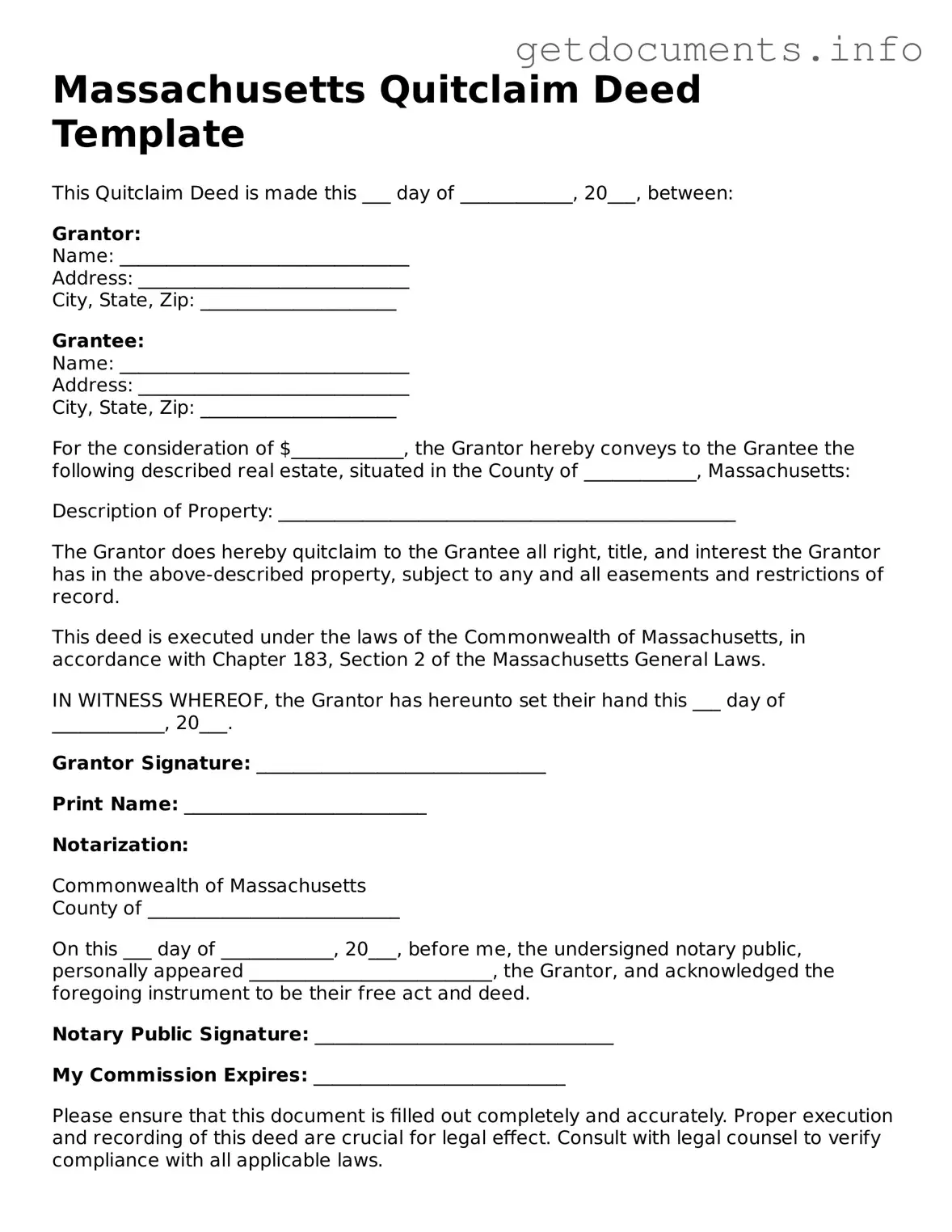Free Quitclaim Deed Template for Massachusetts
A Massachusetts Quitclaim Deed is a legal document used to transfer ownership of real estate from one party to another without any warranties. This form is particularly useful for individuals looking to convey property quickly and simply, often among family members or in situations where the seller does not wish to guarantee the title's validity. To get started on your property transfer, fill out the form by clicking the button below.
Access Quitclaim Deed Editor

Free Quitclaim Deed Template for Massachusetts
Access Quitclaim Deed Editor
Got places to be? Complete the form fast
Fill out Quitclaim Deed online and avoid printing or scanning.
Access Quitclaim Deed Editor
or
⇩ PDF File
